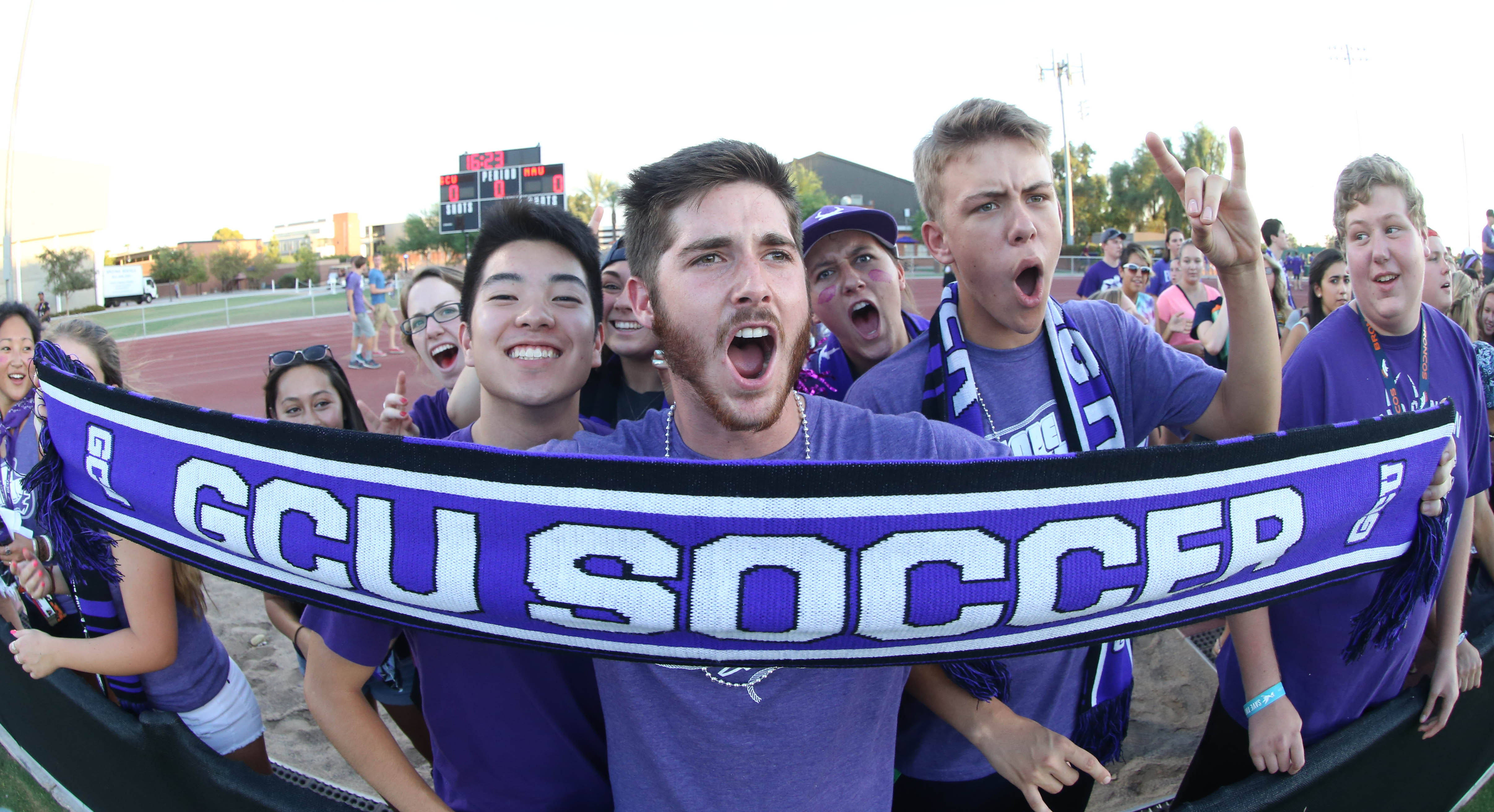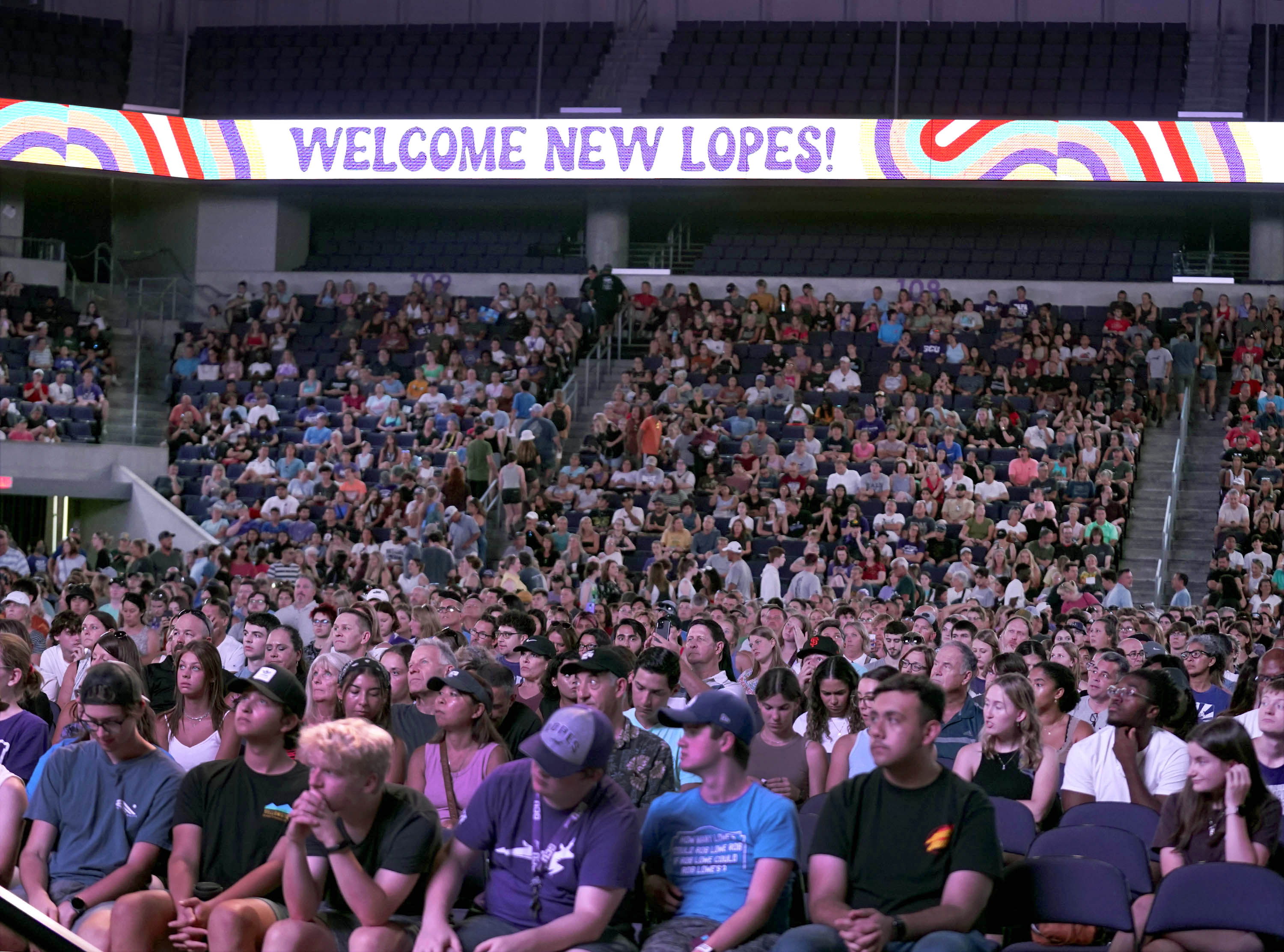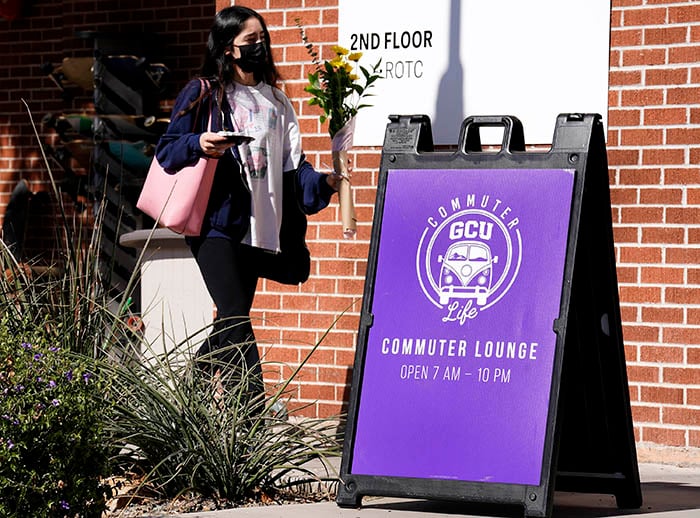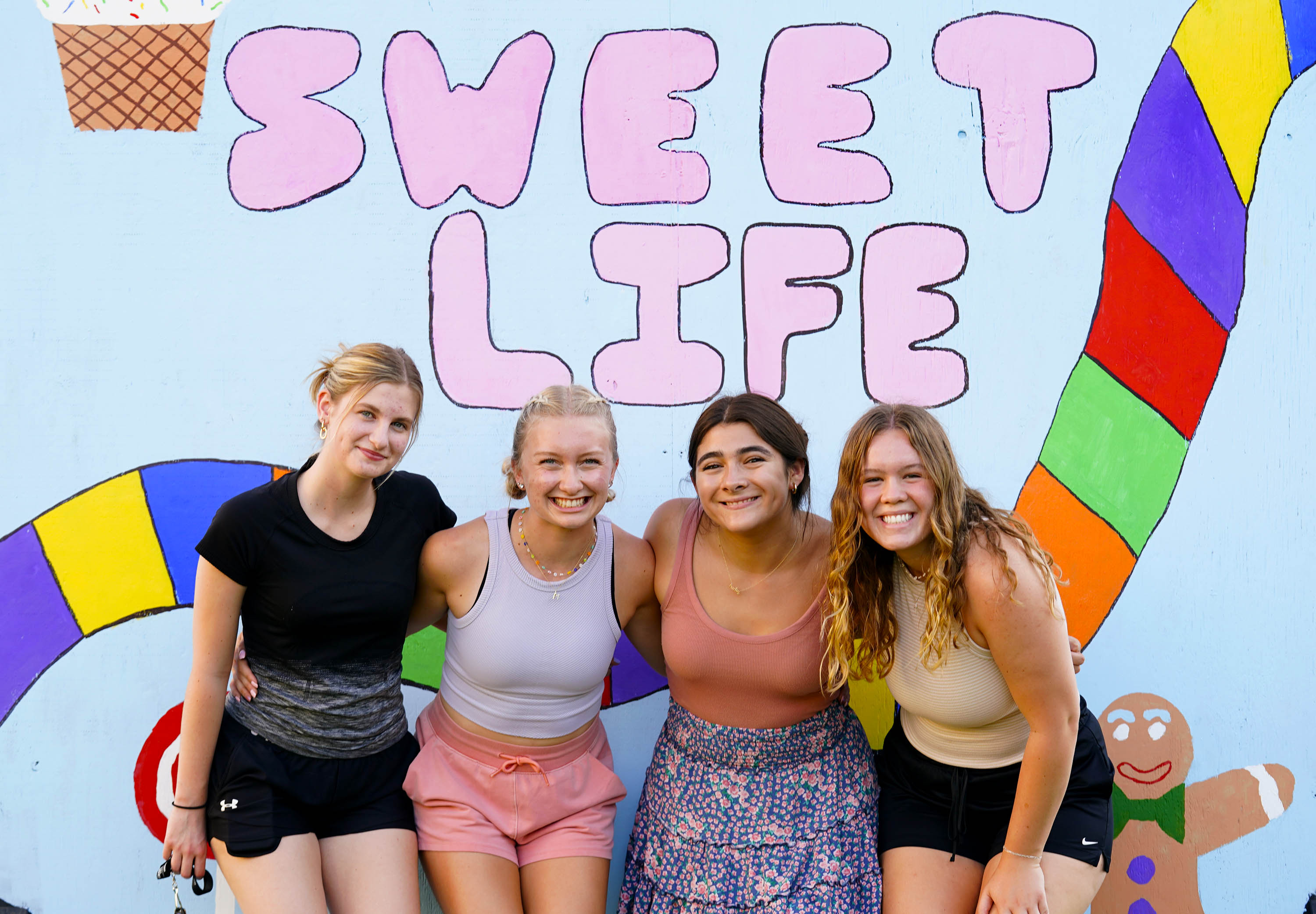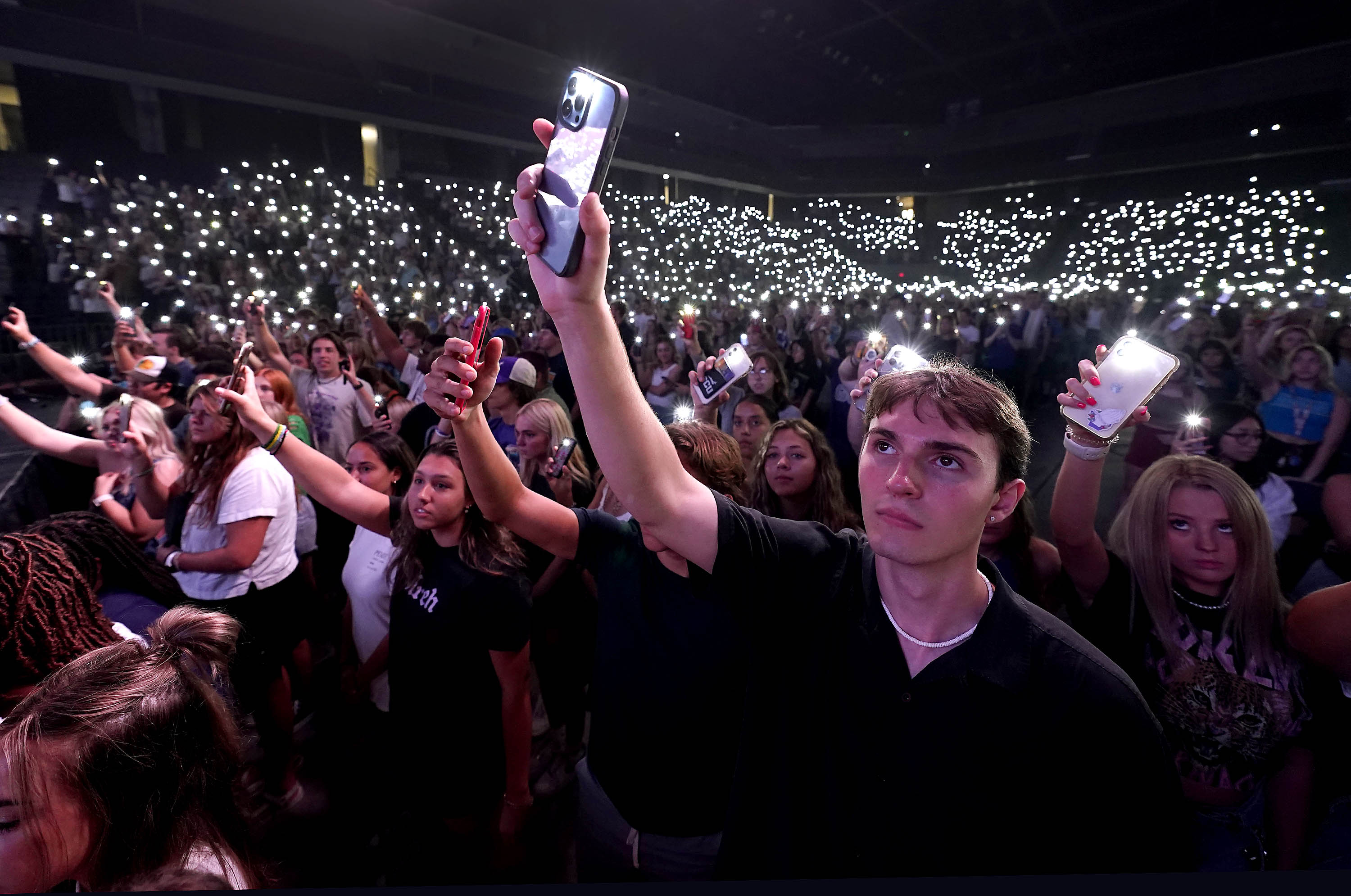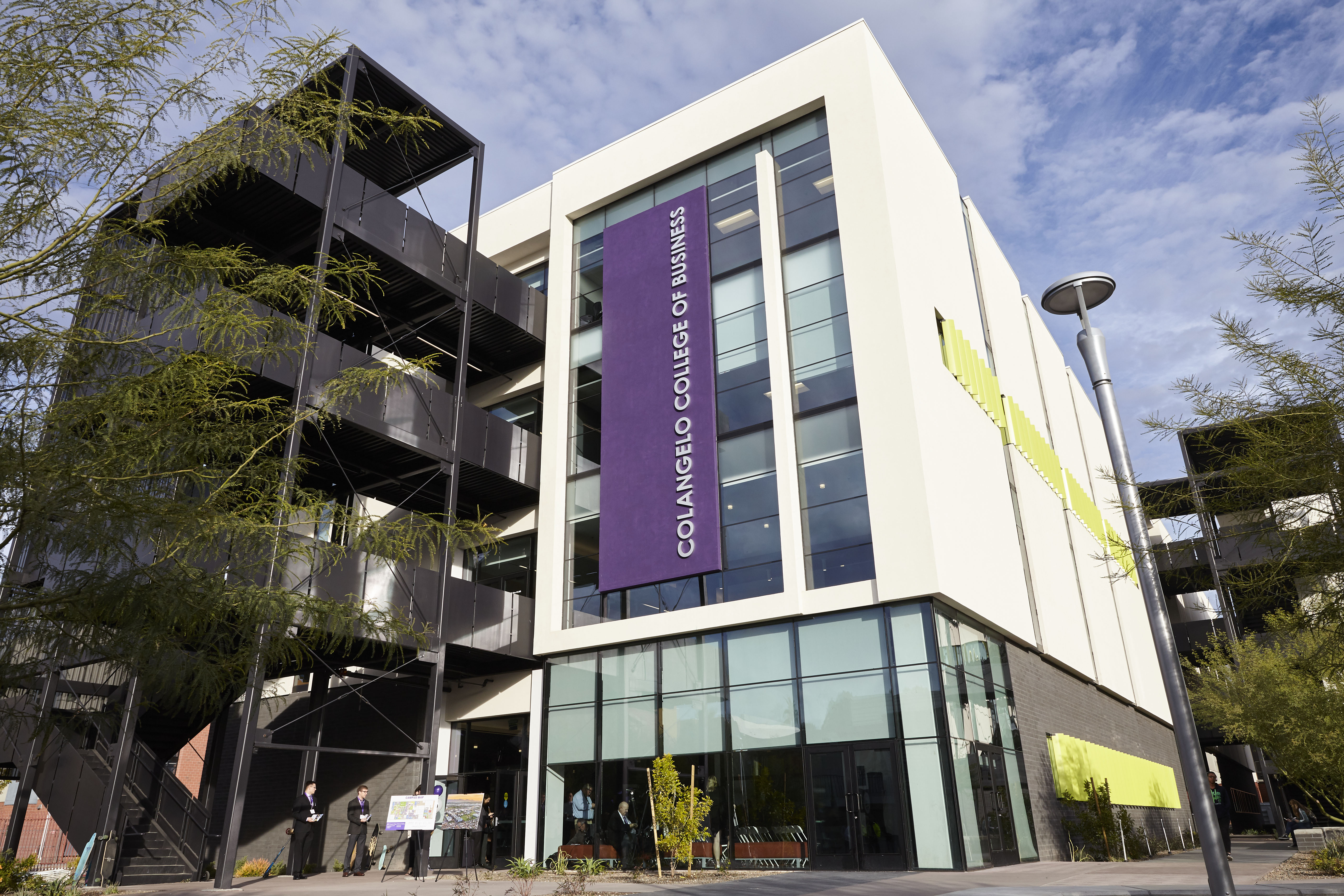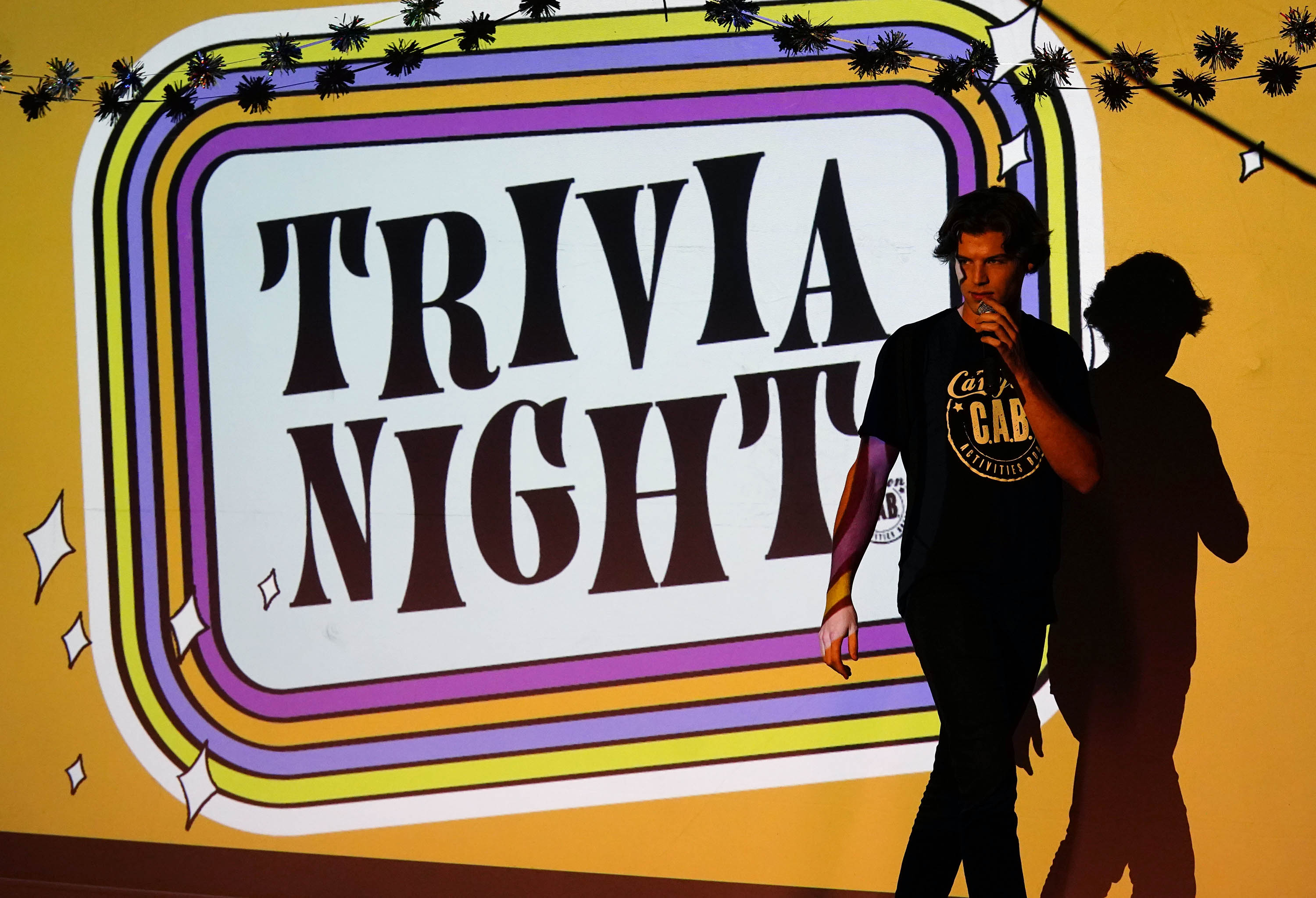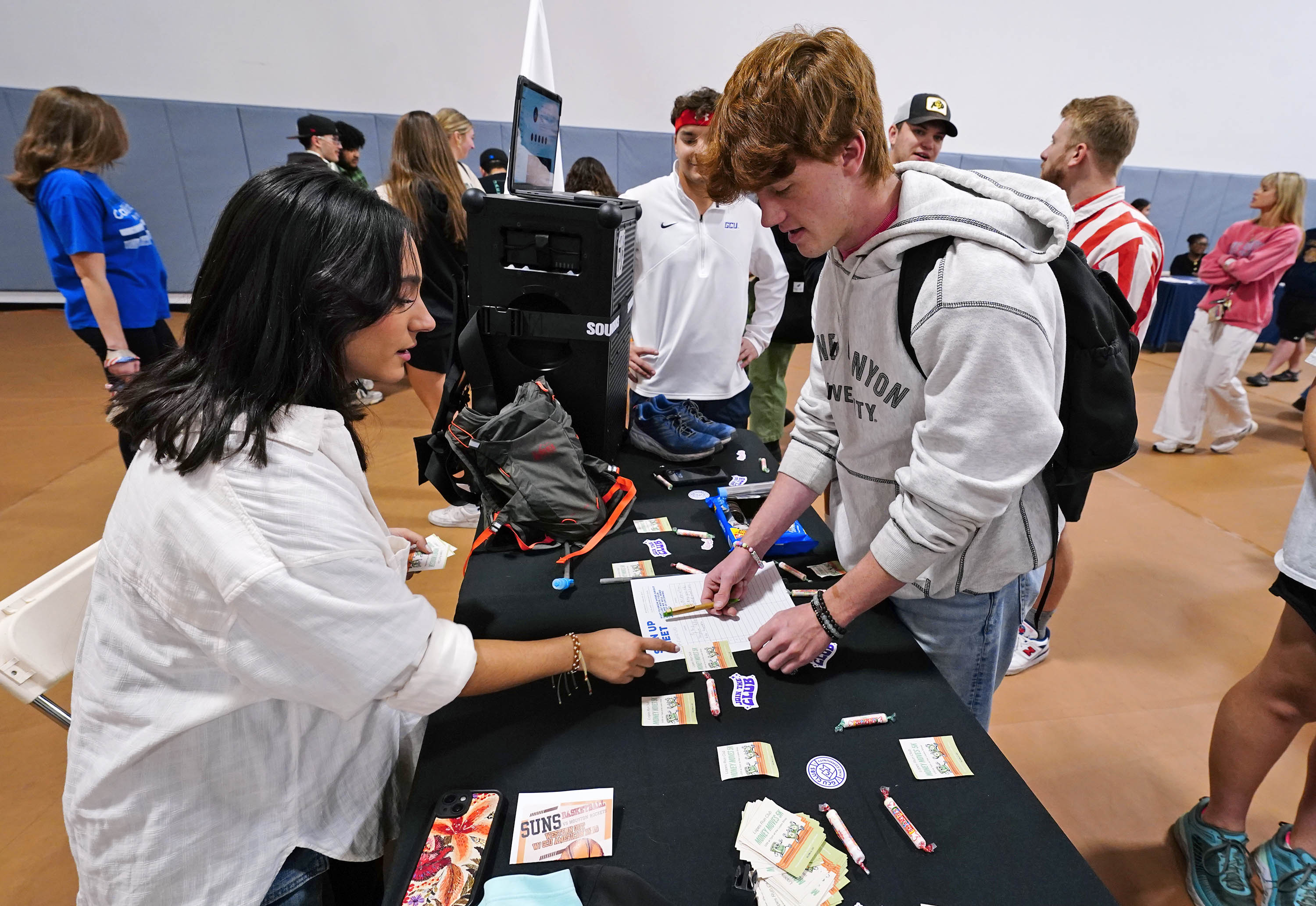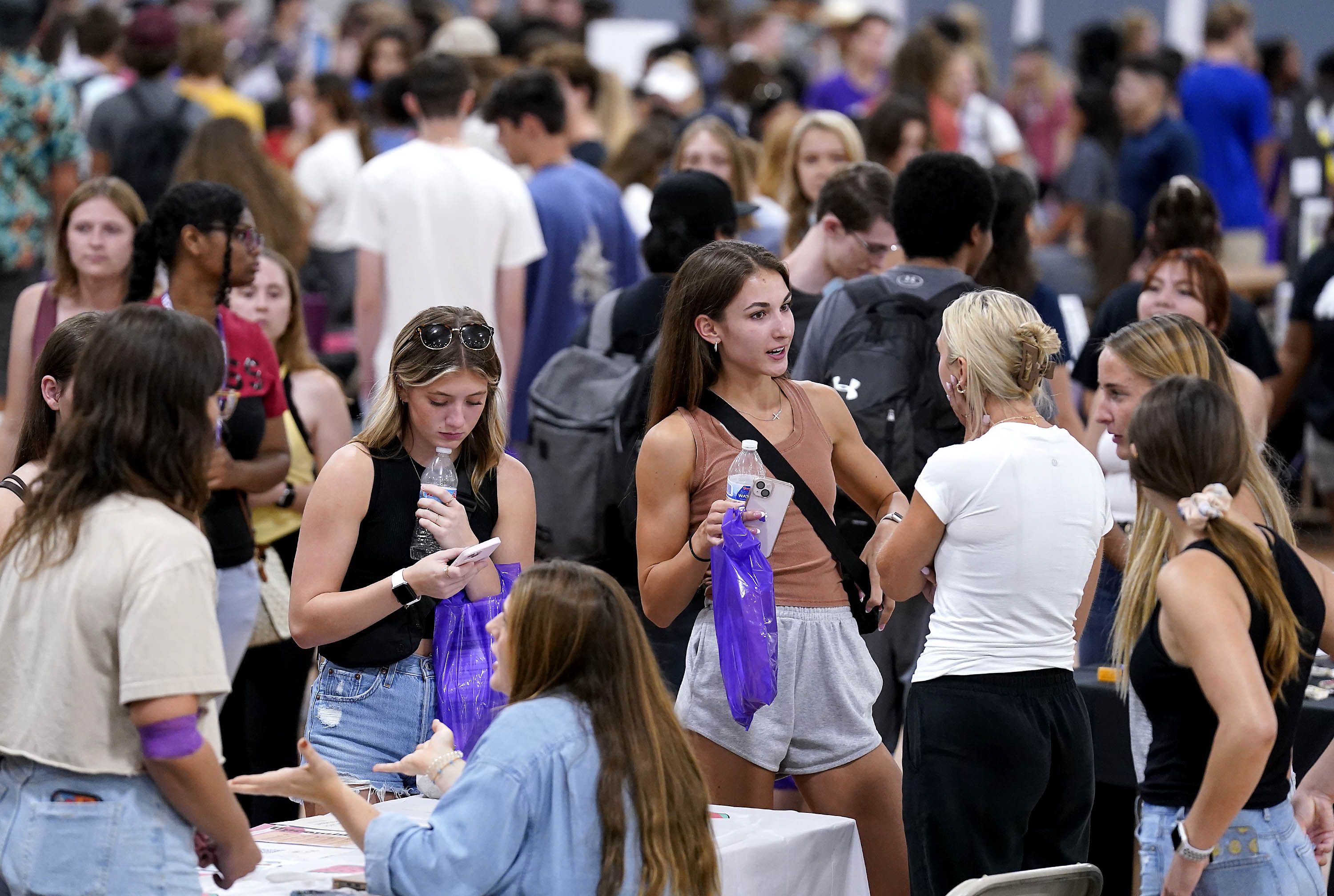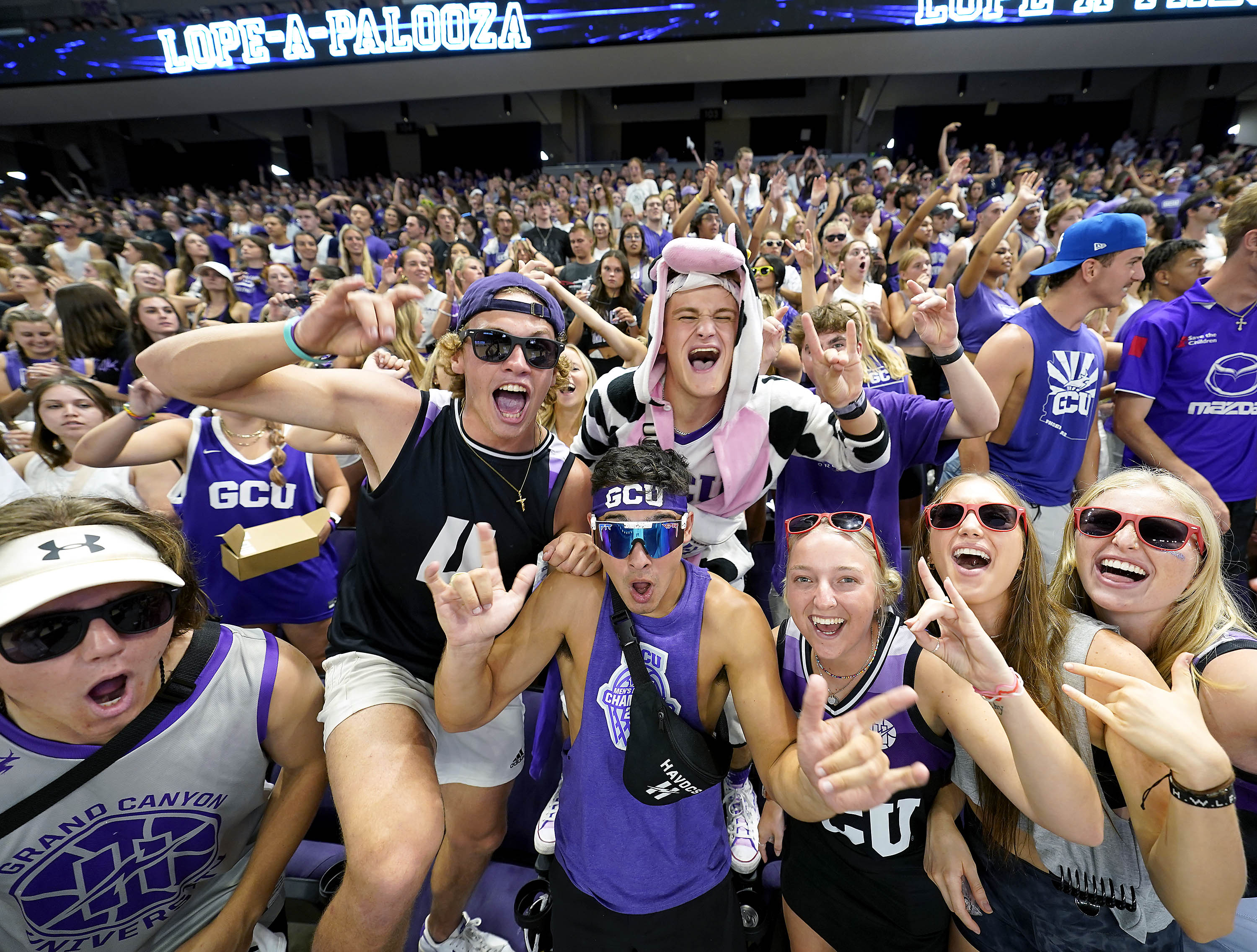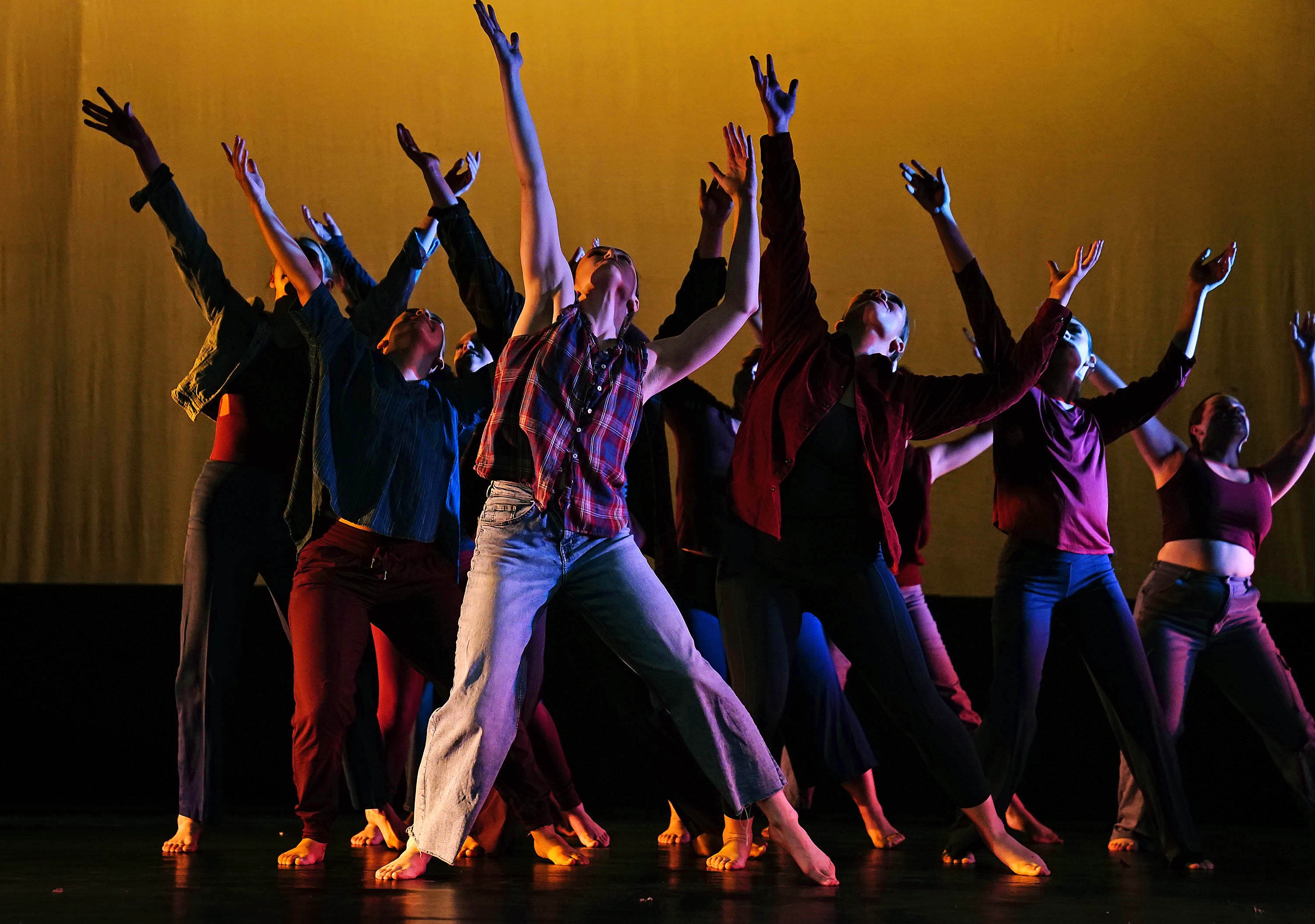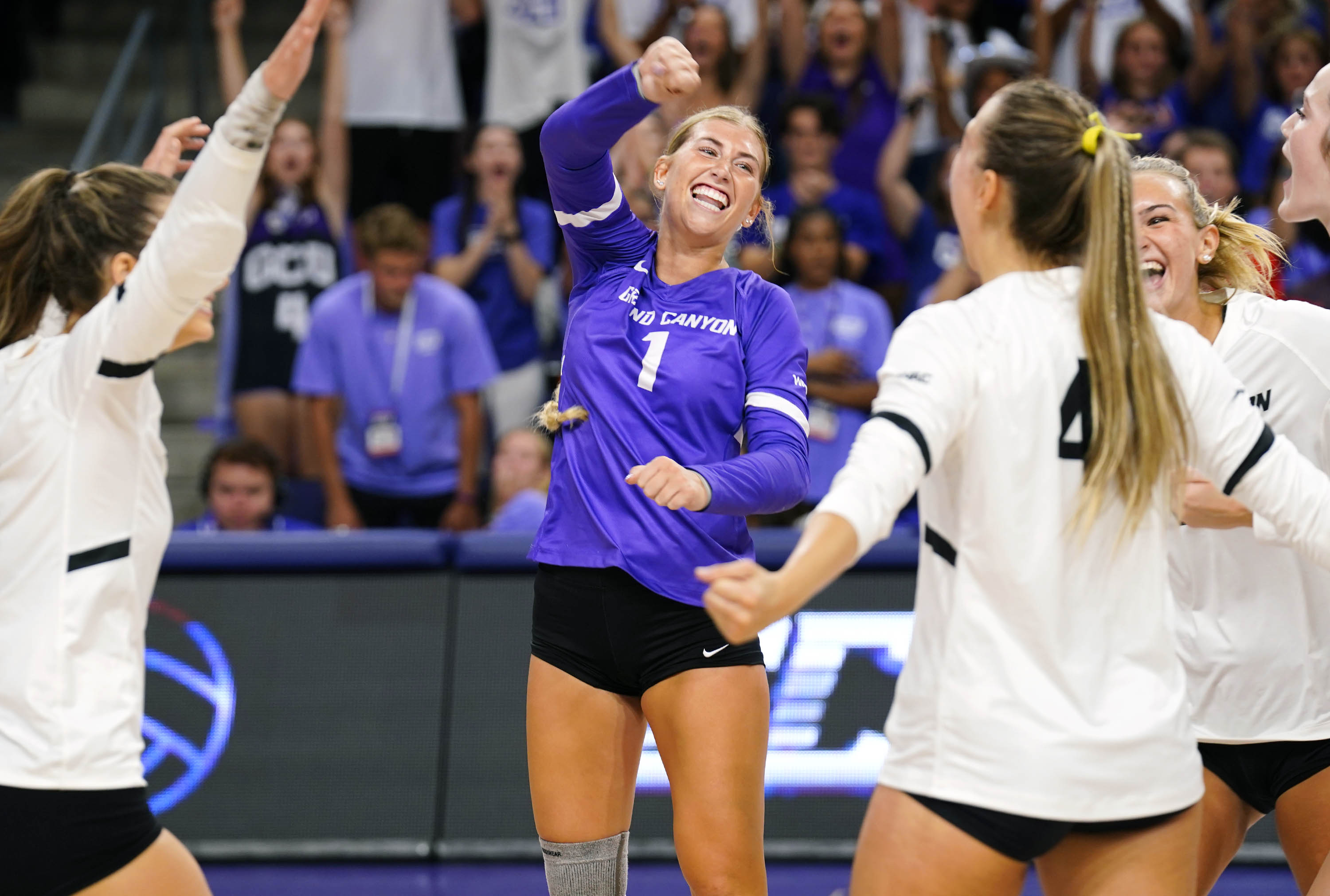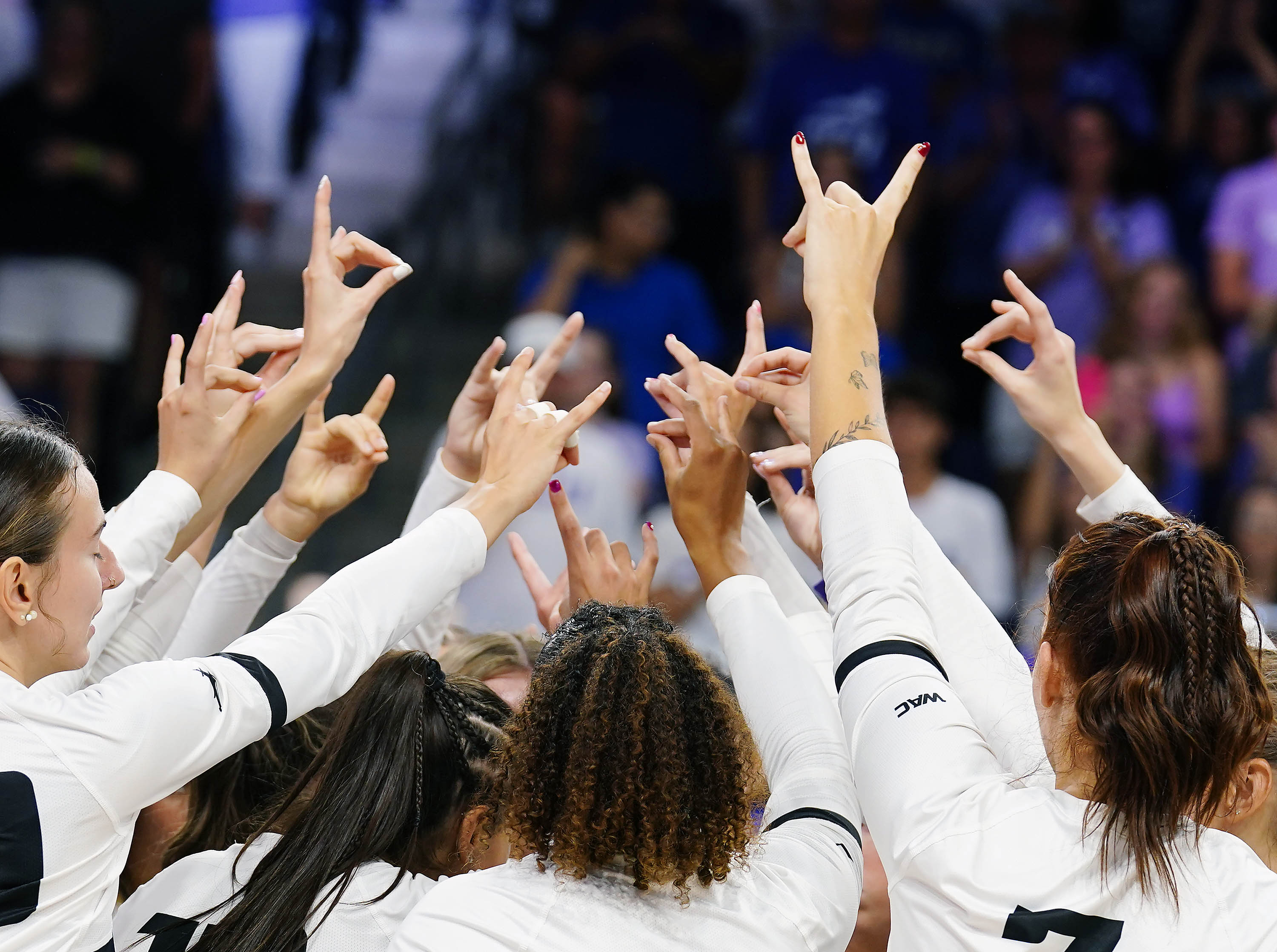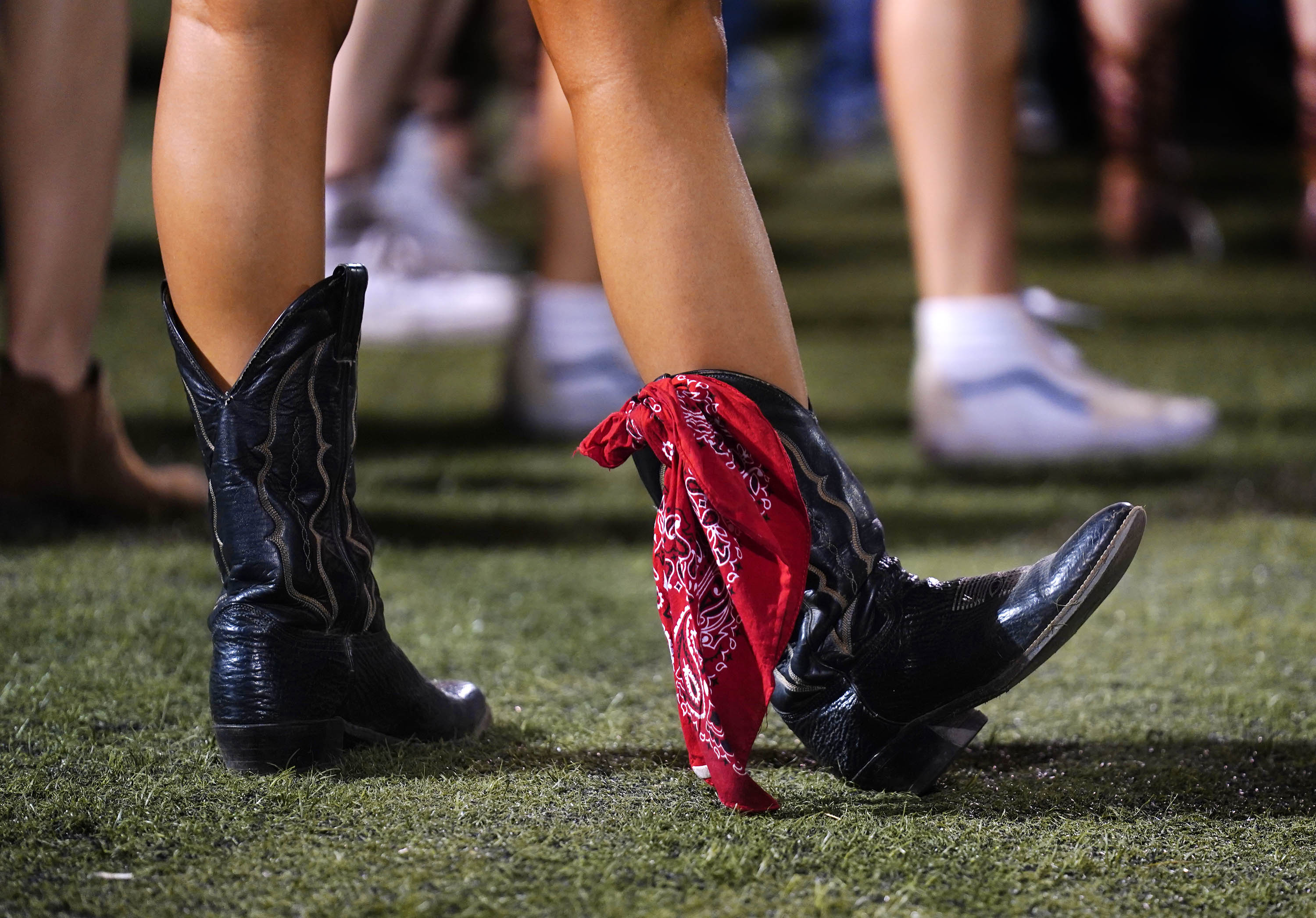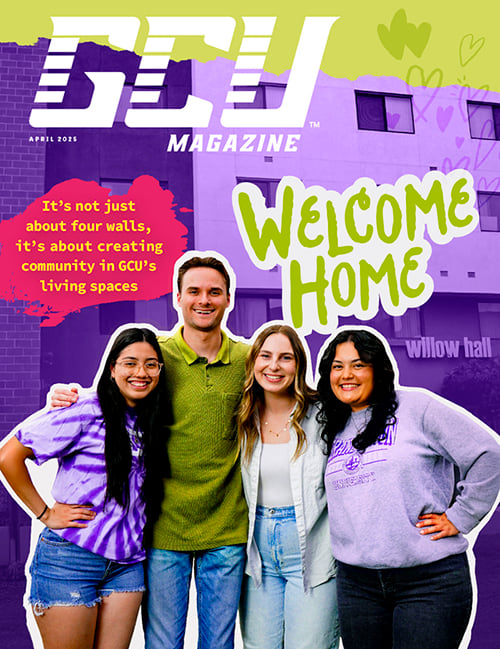
Editor's note: This story is reprinted from the April issue of GCU Magazine. To read the digital version of the magazine, click here.
Story by Lana Sweeten-Shults
GCU News Bureau
You’ve spent four years taking Botany 101, the History of Rock ’n’ Roll and similar courses while wracking your brain over which character has more pride and which has more prejudice – Mr. Darcy or Elizabeth Bennet.
You’ve spent thousands of dollars to gain that knowledge.
You picked a major you love.
But now what are you going to do with that English degree?
“Although humanities are near and dear to my heart, the reality is we have to make sure that all of our students get good, quality jobs when they get out of college. Otherwise, what’s the point?” said Dr. Sherman Elliott, Dean of Grand Canyon University's College of Humanities and Social Sciences. During the Great Recession, and for a few years after that, headlines read that college graduates were drowning in debt. Even worse, they couldn’t find jobs. While the outlook these days seems rosier — the unemployment rate for those 25 and older with a bachelor’s degree is only 2.5 percent, according to the January 2017 report by the Bureau of Labor Statistics — colleges still are under pressure when it comes to making sure students are in the best position to get a job once they earn that degree.
“The Department of Education said, ‘Why is it we have so many students graduating from different programs, but they don’t necessarily have a job waiting for them?’” said Dr. Kevin Walling, CHSS lead in justice studies, government and history. “They said, ‘American universities and colleges, you should be doing a better job educating students in a way that leads to employment.’”
CHSS is focusing on just that.
“It’s been a passion of mine for almost 20 years,” Elliott said. “Outside of working for Grand Canyon University, I’ve always felt that the academic realm was too focused on academics for academics’ sake. … I loved my undergraduate experience in college, but I don’t remember a professor ever talking about a job; never once was I guided toward a career.”
One example of what he calls the college’s approach to career-focused degrees is the Bachelor of Arts in History with an Emphasis in Public History.
“We realized that history was dying across the country,” Elliott said. “There always are teaching jobs, right? But there are jobs in what we call public, or applied, history. So we changed our program. We met with curators, preservationists, archivists. These are people who have worked in museums. They work for state and national parks. They work for private foundations.”
Naomi Primeau, who graduated from GCU in 2016, is one of the first graduates of that program, launched just three years ago. After internships at the Phoenix Historic Preservation Office and the Tempe History Museum, she has been working as a curatorial assistant at the Arizona Capitol Museum since January, where she helps install exhibits, does research and leads tours.
“I knew I didn’t want to do education,” she said.
As serendipity would have it, Dr. David Dean, faculty lead for the history program, pulled her aside and told her she would be a good candidate for the new academic track in public history.
“I said, ‘That’s it!’” Primeau proclaimed of her lightbulb moment and changed her major to include the public history emphasis.
When it came to her job search, “it (the career-focused degree) has definitely helped. One thing about public history is it is a graduate program at most schools. I think we are the only ones that offer an undergraduate degree.”
The college has done the same kind of humanities degree reshaping for the psychology program, not only offering the traditional psychology degree but an emphasis in performance and sports psychology.
“That one’s been taking off. … Not only do kids love sports and performance, but it’s where the jobs are,” Elliott said.
In government, CHSS offers two emphases, one in public policy and another in prelaw or legal studies. “A lot of kids end up either not going to law school, or they go to law school, they don’t like it and they drop out. We wanted to make sure the degree was something useful, so we created a program so that even if you don’t go to law school, you can still get a job as a paralegal.”
The college did the same for English majors, where jobs, again, aren’t so plentiful. The degree now includes an emphasis in professional writing, added two years ago, to go along with the B.A. in English for Secondary Education.
GCU does not offer a journalism program.
“Enrollment statistics for journalism majors, and employment opportunities that journalism majors have, have dramatically decreased in recent years,” said Brian Raftery, Program Chair for English.
Professional writing students can still pursue journalism but also advertising, public relations, media relations or organizational communication. Some students in the program — it touts 100 students in just two years — are doing internships as ghostwriters, website content creators, and in digital content writing and marketing, to name a few.
Raftery said the college keeps up with the job market by looking at Department of Labor statistics and meeting with advisory boards. The English and communications advisory board, for example, is made up of business leaders, literary agents and people in the advertising and newspaper industries.
“We want to make sure that our programs are meeting the needs of the marketplace because we need to keep our fingers on the pulse,” he said. “We want our students to find careers in their majors. We don’t want them to have to end up at Starbucks after four years.”
Reshaping the degree
Bachelor of Arts in English: Now two tracks are offered — the B.A. in English with an Emphasis in Professional Writing and the B.A. in English for Secondary Education.
Bachelor of Arts in History: You can still get a B.A. in History or you can pursue the B.A. in History with an Emphasis in Public History.
Bachelor of Science in Behavioral Health Science: In addition to the Behavioral Health Science Degree, CHSS offers three emphases, one in Childhood and Adolescence Disorders, a second in Family Dynamics and a third in Trauma.
Bachelor of Science in Counseling: Has become the B.S. in Counseling with an Emphasis in Addiction, Chemical Dependency and Substance Abuse.
Bachelor of Science in Psychology: Students can pursue the original degree, a B.S. in Psychology, or could choose a B.S. in Psychology with an Emphasis in Performance and Sports Psychology.


